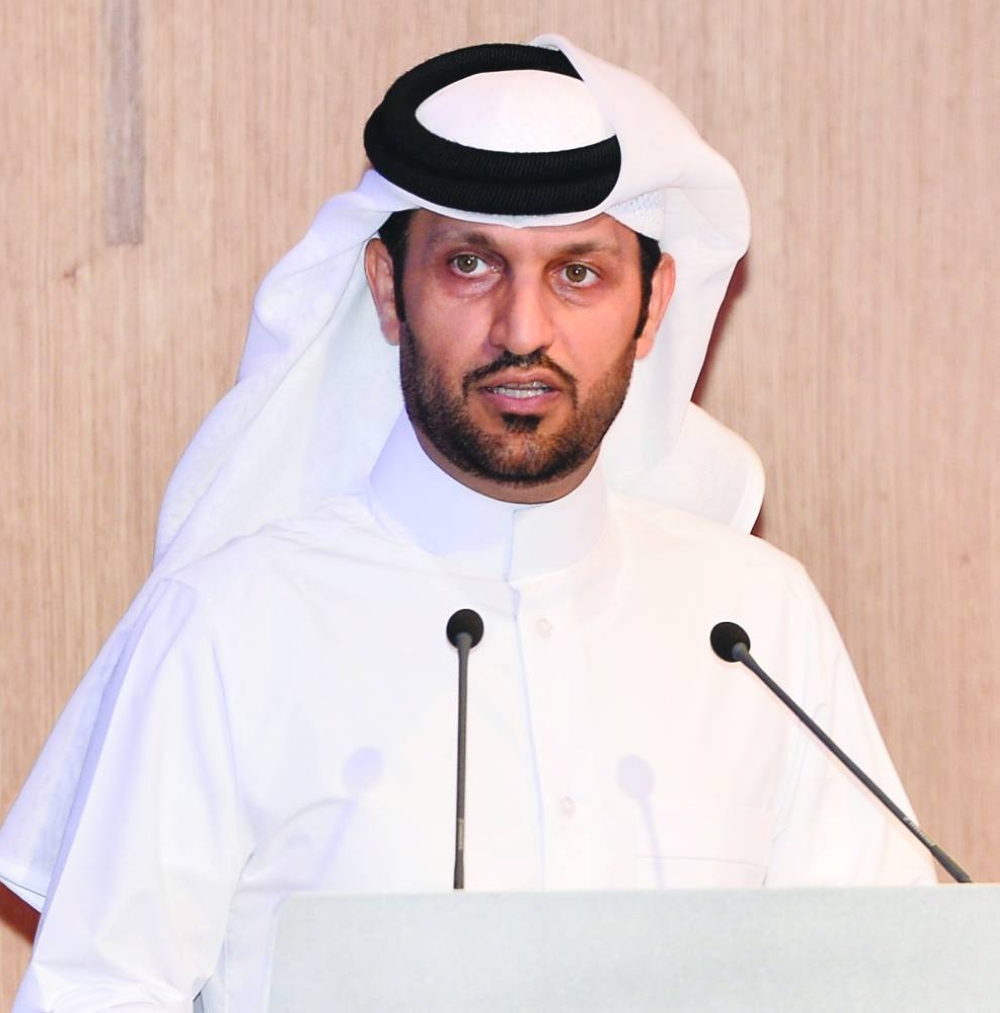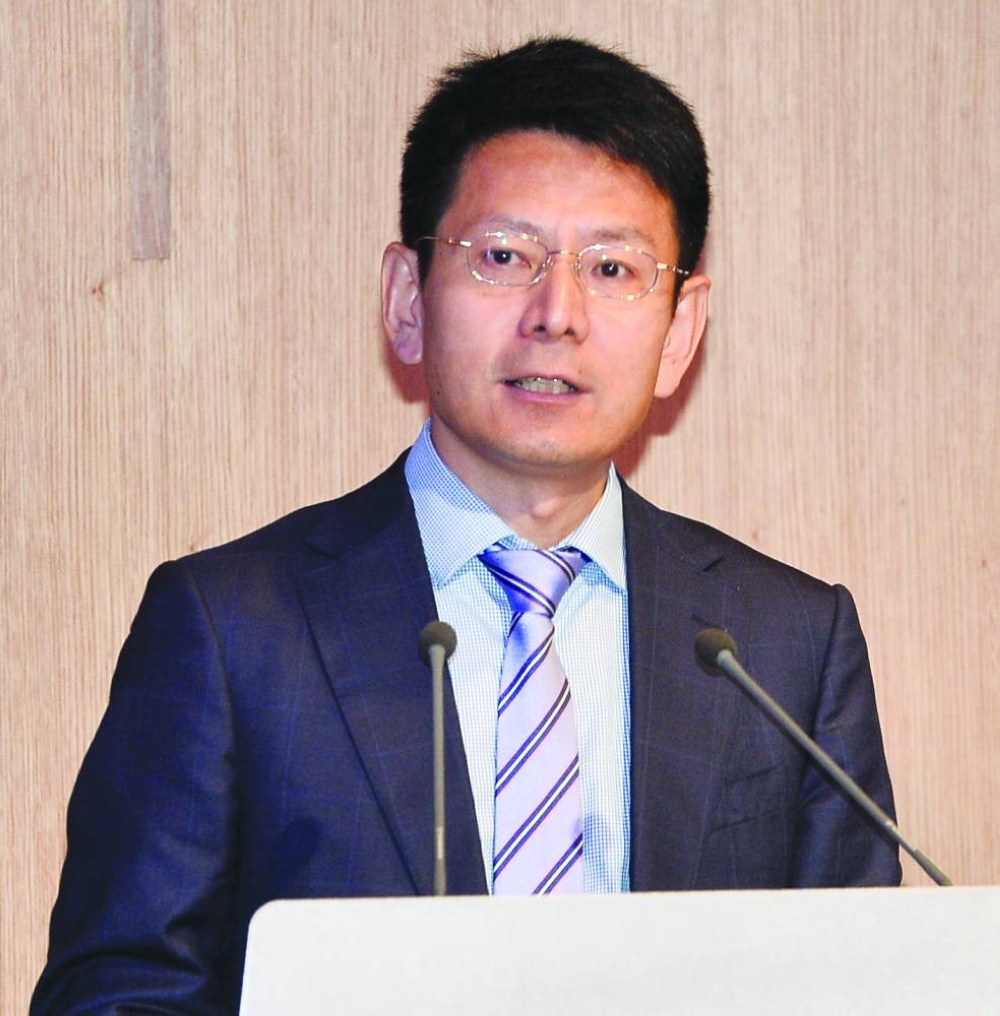Public and private sector officials underscored the importance of developing skilled talent and innovation during the opening ceremony of Huawei’s 2023 ‘Seeds for the Future’ programme held in Doha Sunday.
Under the patronage of the Communications Regulatory Authority (CRA), the opening ceremony gathered 175 students from elite universities across the Middle East and Central Asia at the Qatar National Convention Centre (QNCC). As many as 16 students from Qatar are set to participate in Huawei’s global CSR programme.
The regional event aims to develop local talent, share knowledge, increase the Information and Communication Technologies (ICT) sector awareness, and foster a digital community for young ICT talents.
Students representing 15 countries in the Middle East and Central Asia will participate in the first phase of the ‘Seeds for the Future’ programme until September 9 in Doha. These countries are Qatar, Saudi Arabia, Kuwait, the UAE, Bahrain, Kazakhstan, Pakistan, Oman, Uzbekistan, Jordan, Lebanon, Iraq, Azerbaijan, Mongolia and Kyrgyzstan.
The participating Qatari students are from Qatar University, Hamad Bin Khalifa University, Community College of Qatar, and the University of Doha for Science and Technology.
Reem Abdulaziz al-Mugbel, acting vice governor for Planning & Business Development, Technical and Vocational Training Corporation in Saudi Arabia; Omar Abdulaziz al-Naama, assistant undersecretary for Private Education Affairs, Qatar; Jawad Abbassi, head of GSMA, MENA; and Dr Jassim Haji, president of International Group of Artificial Intelligence, delivered keynote speeches during the opening ceremony.
The event was also attended by Karimjonov Rustam, Deputy Minister of Digital Technologies of Uzbekistan, and Kamil Akatov, Vice Minister of Science and Higher Education, Kazakhstan.
Hussain Salatt, Public Relations and Communication Unit manager, CRA, said: “The CRA has supported this programme for the fourth consecutive year as it encourages skills development and innovation to contribute to Qatar National Vision 2030 goals, one of which is to create a balance between an oil-based and a knowledge-based economy.”
Shunli Wang, vice president of Huawei Middle East and Central Asia, said: “At Huawei, we’re proud to be among the first few global tech companies to leverage its technology and expertise to help narrow the talent gap through programmes like ‘Seeds for the Future.'”
Since its launch in 2008, more than 15,000 students have participated from 139 countries worldwide. The programme has been endorsed by more than 450 senior officials and heads of state.
The ‘Tech4Good’ regional competition, now in its third year, will also be held during the ‘Seeds for the Future’ programme to empower and engage the youth in driving positive change within their communities.
This year, the ‘Seeds for the Future’ programme will host eight days of intensive training sessions and workshops, including cutting-edge ICT technologies, scientific and technological leadership, discussions on global topics, and ‘Tech4Good’ group projects.
Through learning and mutual exchange, participants will gain a better understanding of 5G, Artificial Intelligence (AI), and cloud technologies, build more strengths for future growth, and improve their competitiveness in the job market. Students will also have the opportunity to visit the exhibition hall at Huawei’s headquarters in Qatar, including Education City, Lusail Stadium, and a tour of Doha.
Participating students will present their ‘Tech4Good’ projects to the judges; eight outstanding teams of 40 students will be selected to move on to the second phase of the ‘Tech4Good’ programme, which will be held in Dubai from September 10 to 16, 2023.
The winners will then qualify to compete in the final global competition in China against other teams from around the world. The students will jointly explore ICT’s huge potential to drive sustainable development. Winners from the ‘Tech4Good’ global competition will be invited to the ‘Tech4Good Startup Sprint’ in China, where they will visit Shenzhen, Beijing, and other cities to experience real-world entrepreneurial environments and compete for a startup support fund worth $100,000.

Hussain Salatt

Shunli Wang

